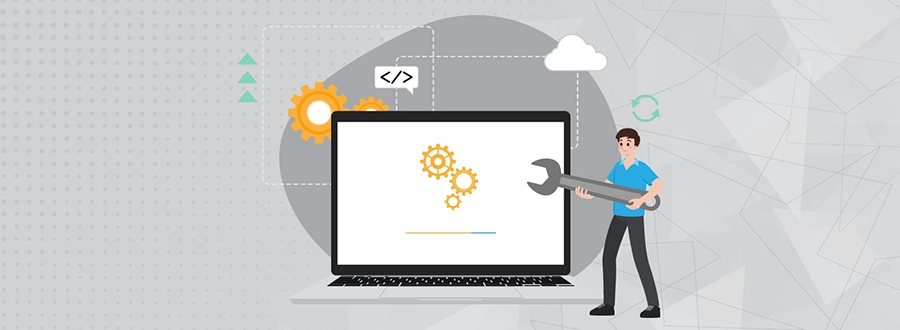If you’re reading this, you are probably a laptop owner who relies on it to stay connected and be productive. But with so much personal and work-related information stored on your device, it’s important to take steps to protect it from thieves and hackers. There are ways of keeping your data safe, even if your laptop goes missing. So here is a look at the six most effective laptop security tips every user must know.
1. Encrypt the hard drive
Using a login password is often not enough to deter determined intruders. You need a more reliable technique to protect your data. Encrypting your hard drive will make your files incomprehensible for attackers. Even if they remove the hard disk and try to directly access data, the files will still make no sense. If you are not sure how to do this, seek the help of cybersecurity professionals offering managed device encryption services.
2. Back up your data
Laptop thefts can turn into bigger disasters than they already are, if you have not backed up your data. Imagine losing years of research material or valuable business information and being unable to continue your work. External hard drives with increasingly larger capacities are easily available at affordable rates. Use these to back up data. Better still, save your data on a cloud platform to instantly gain access to your files from any other device and continue working uninterrupted.
3. Lock down your laptop with security cables
This is one of the most cost-effective yet reliable laptop security tips every user must know. If your laptop has a slot to connect security cables, invest in a cable to lock the laptop to an immovable object. Of course, a thief may be able to sever the cable. But it will take some time that the thief obviously does not have. All you have to do is lock up your laptop and wrap the cable around an immovable object such as fixed tables or beams.
4. Install tracking software
What can be probably better than tracking down and recovering your stolen device? It is easier than you expect. Install necessary software on your laptop and if the laptop goes missing, you can locate it online and restrict access to it. Coupling it with a police report makes it easier to recover your device. Such software usually comes with a yearly fee that is totally worth it if you ever lose your laptop.
5. Install and update antivirus software
Theft is not the only way that your laptop can face security issues. Are you one of the many laptop owners who don’t have antivirus software installed? If so, you’re opening yourself up to a world of potential problems. Viruses, spyware, and other malware can do serious damage to your computer and can even steal your personal information. Installing antivirus software is the best way to protect yourself from these dangers. In addition, make sure you keep your antivirus software up-to-date; outdated software can leave your computer vulnerable to attack.
6. Update your system and software

Outdated software can leave your computer vulnerable to attacks from hackers. Updates are released for a reason—to fix security holes and improve the stability of your system. In this blog post, we’ll show you how to update your operating system and other software. We’ll also recommend some utilities that can make the process easier. So, whether you’re running Windows or macOS, be sure to keep your software up to date!
7. Use a VPN
A VPN is a virtual private network that encrypts your traffic and protects your online privacy. Without a VPN, your data can be accessed by anyone who wants it. With a VPN, however, your data is protected from prying eyes. So if you care about your privacy, start using a VPN today. Read our blog to know more about VPNs.
While these are essential laptop security tips every user must know, there are immediate steps you must take in case your laptop is stolen. These include changing the passwords of all your accounts – email, social networks, instant messengers and bank accounts. File a stolen report with the police right away and alert your bank about possible money swindling.
Focus on making it difficult for thieves to steal your laptop and even more difficult to access your data. Add layers of security – both physical and digital – to ensure that your device and data remain safe from prying eyes. Implementing these simple tips can go a long way in ensuring laptop security and reducing the risk of a data breach in case your laptop is lost or stolen, or hacked. Need more security tips for your laptop or PC? Read our blogs or Contact us to speak to a cybersecurity consultant.
You may also like the following
How to fix a laptop that won’t turn on
Jargon Buster
VPN – A Virtual Private Network creates a private network across a public network, giving you privacy over your data and internet usage.
Encryption – The process of encoding data so that only the person with the correct key can decipher it.



